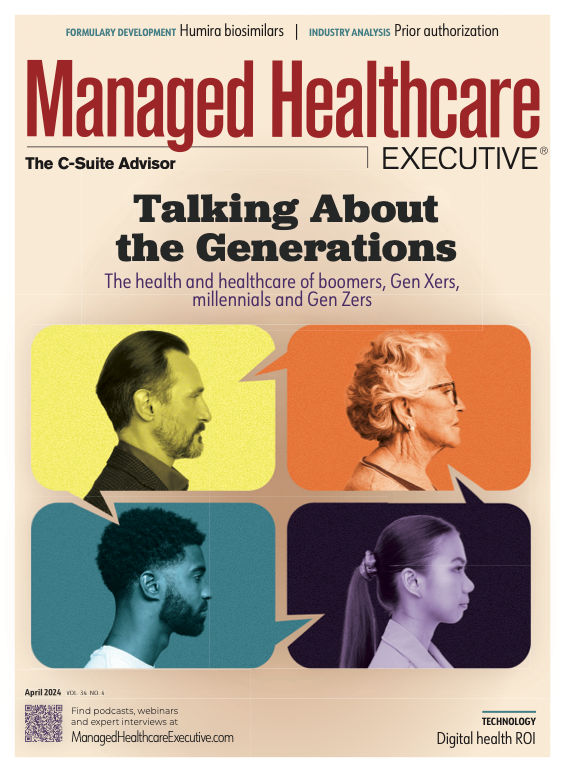Talking About the Generations: The Health and Healthcare of Boomers, Gen Xers, millennials and Gen Zers. Part 2, Gen Xers
Gen X (1965–1980), still traditional — and stuck in the middle.
Generation X includes 65 million people born from 1965 to 1980. Now solidly in middle age, they are a sandwich generation, with many still raising kids while helping aging parents. This generation spends an average of $5,500 on healthcare annually, which is an average of 6.7% of their total spending, according to the World Economic Forum. That figure is about $1,000 less than what baby boomers spend in actual dollars on average, but several points less than the percentage boomers pay out compared with their overall spend. For boomers, an average of 10.6% of their spending goes toward healthcare.
Katy Gajewicz

Gen Xers have traditional approach overall to healthcare, says Katy Gajewicz, chief strategy officer of Laughlin Constable, a brand experiences agency. “Not that they’re less discriminating, but they’re older, so they’re more accustomed to the status quo,” she says.
Gen Xers often have not taken the best care of their health, with trends of worsening mortality and morbidity rates partly affiliated with psychological issues. Research data published in the American Journal of Epidemiology show Gen Xers are experiencing mental health-related issues, substance abuse and sequelae, along with a slowdown in the progress previously made in heart disease mortality. The researchers found thatnGen X’s elevated mortality was driven by smoking, drug use and physiological deterioration.
Researchers of another study, which was published in BMC Public Health, dug into the medical records of people born in 1970. They discovered what they said was a relatively high prevalence (33.8%) of multimorbidity when this cohort was in their mid to late 40s. This included mental health issues and high-risk drinking, along with recurrent back problems, asthma/bronchitis and arthritis.
Craig Kurtzwell

Gen Xers still mostly rely on the traditional model for accessing healthcare. “They’re more willing to engage with a primary care provider,” says Craig Kurtzweil, chief data and analytics officer at UnitedHealthcare. “That’s how their parents used healthcare, and that’s how they use healthcare.” The shift in usage and access points transitions in subsequent generations.
Results of an Insider Intelligence survey showed that 88% of Gen Xers have a dedicated primary care provider, though they are open to other models. Thirty-six percent of respondents said they would consider receiving primary care at a retail health clinic, and 54% noted that they have used telehealth for themselves or a dependent. This was similar to findings in Laughlin Constable’s 2023 PULSE report, “Healthcare Is on the Brink of Fragmentation” thatshowed that 36% of Gen Xers have considered accessing healthcare outside of their primary care physician, the lowest of the other generations and lower than the national average of 47%.
That said, Gen Xers do use other retail clinics and telehealth, though at lower rates than millennials and those in Generation Z. Laughlin Constable’s 2023 PULSE report showed that members of Gen X expressed a 23% likelihood of using tech companies’ healthcare such as telehealth or retail clinics, slightly lower than Gen Z at 27.2%, but much lower than millennials at 51.2%.

Conversations With Perry and Friends: Paul Fronstin, Ph.D.
May 9th 2025Perry Cohen, Pharm.D., a longtime member of the Managed Healthcare Executive editorial advisory board, is host of the Conversations with Perry and Friends podcast. In this episode, his guest is Paul Fronstin, Ph.D., director of health benefits research at the Employee Benefit Research Institute.
Listen
Conversations With Perry and Friends
April 14th 2025Perry Cohen, Pharm.D., a longtime member of the Managed Healthcare Executive editorial advisory board, is host of the Conversations with Perry and Friends podcast. His guest this episode is John Baackes, the former CEO of L.A. Care Health Plan.
Listen